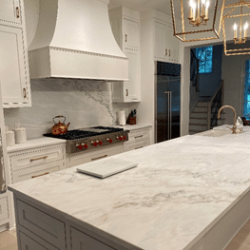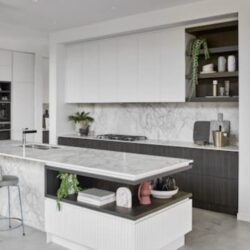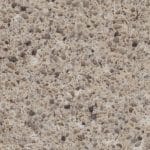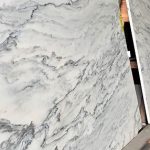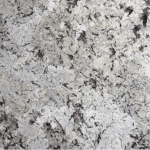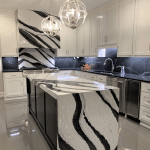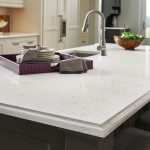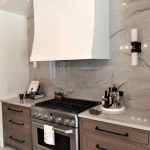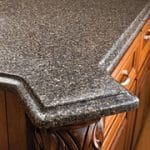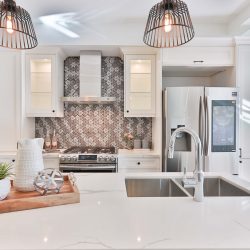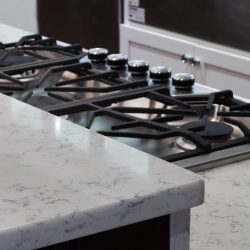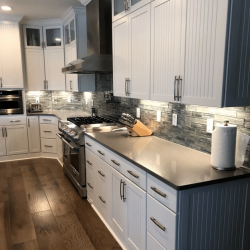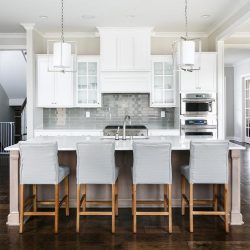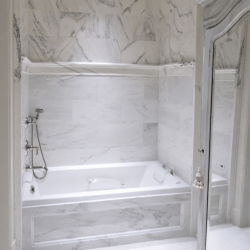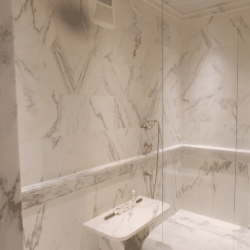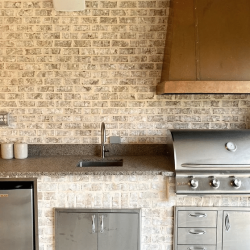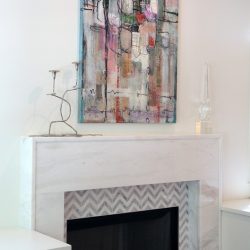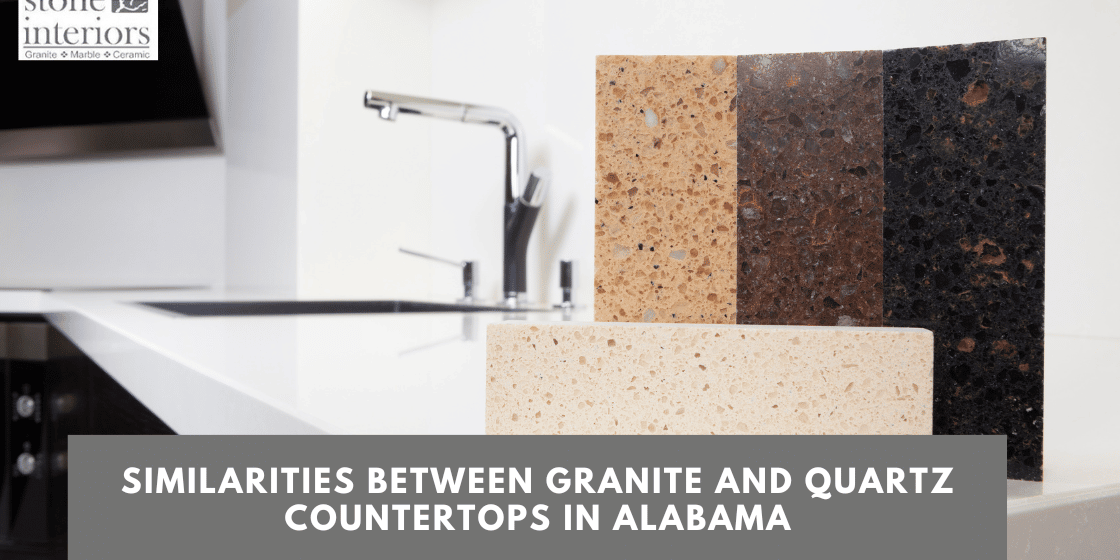Granite remains in high demand, thanks to its beauty and durability. Quartz countertops, also called engineered stone countertops, are very similar in performance and appearance of granite countertops, but very different in making. Therefore which is better between granite and quartz countertops?
Is there a clear-cut difference between the two? Both materials have their enthusiasts in Alabama. The key is to simply understand each fully, and when you do, you will be able to pick one that best suits your interest.
Natural Granite vs. Quartz Countertops
Granite Countertops in Alabama are mined directly from the earth. The stone is then sawed into sizable slabs or cut into tiles before being polished for installation. Quartz countertops are engineered from crushed quartz mixed with pigments for coloration and resin binders. The content of quartz is between 92% to 94%.
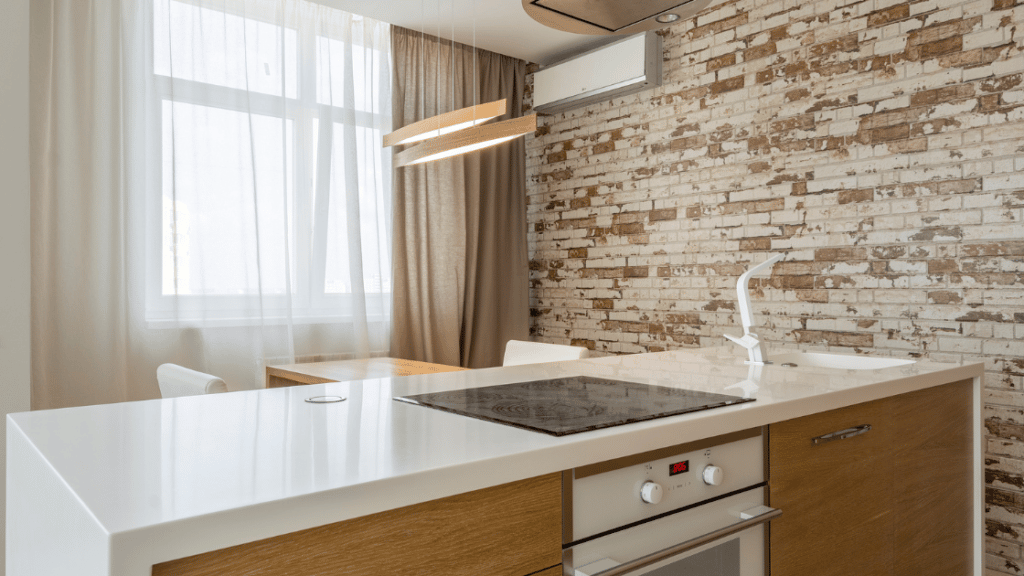
granite and quartz countertops
Why choose granite over quartz?
Still not sure about which is the best choice for your home?
If so, here are some valid reasons why granite could be better, according to countertop customers who chose granite over quartz countertops.
Nothing beats the Real Thing: This is an approach used by homeowners who are really set on having all-natural materials in their homes. You will find them choosing wooden flooring instead of laminate or manufactured wood. The same people would rather go for wool as opposed to nylon. Their home’s siding is made of wood, not vinyl. Their upholsteries are all natural materials. If this sounds like something you would definitely go for, you’ll love the natural appeal of granite for kitchen countertops in Alabama and see all the potential flaws as traits.
This is real the chief reason why people choose granite, limestone, slate and other natural countertops instead of quartz. Fabricators claim that quartz countertops are 94% natural because of their content of crushed quartz. Although this is true, it will be like saying concrete is natural since most of its ingredients are natural.
Just like concrete, quartz countertops are heavily processed, all which eliminates any natural feel, a major turn off for most homeowners.
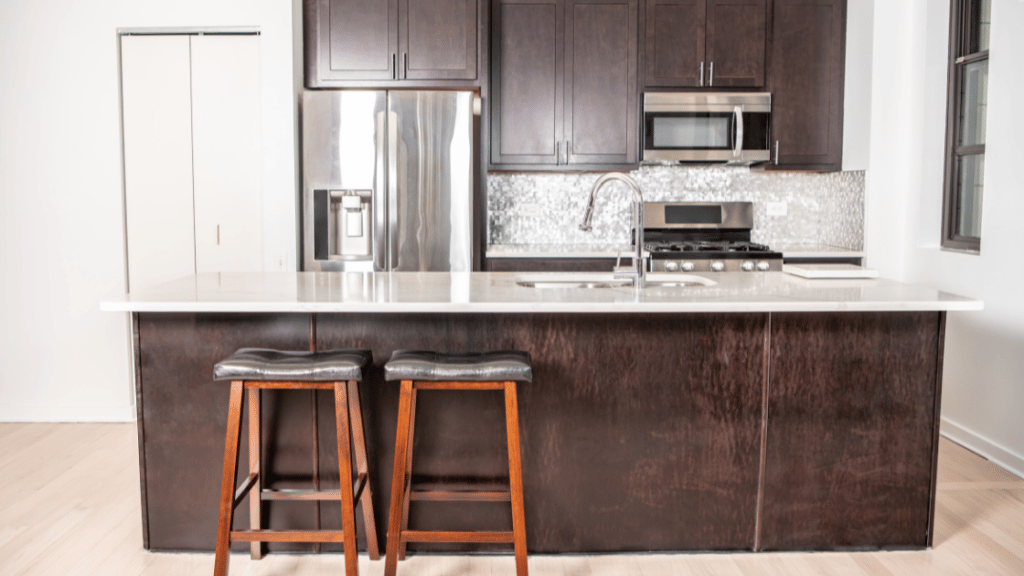
granite and quartz countertops
Looking at granite countertops, you’ll see that the striations and color variations make each slab unique. The design and color is all real. Quartz countertops only exhibit designs that are engineered into them. Natural material enthusiasts would prefer to have a chunk of plain stone from the earth in their homes instead of something whipped up in a factory with artificial colors.
Granite and quartz countertops are great, and if you are ultimately decided on getting them, make a commitment to have them sealed by a professional at least after every six months.
Reasons to choose quartz over granite countertops
Let’s give equal attention to quartz countertops. Below are advantages of quartz countertops that make them better than granite.
Quartz Countertops in Alabama are easier to clean: Because they are engineered, they are non-porous. Granite, marble and other natural countertops have pores and small capillaries within the slabs. These are natural structures that wick up liquid, resulting in stubborn stains. There’s more: these tiny pores also harbor the development of germs and viruses.
The non-porous surface of quartz countertops won’t collect these germs, so quartz is the better choice for better hygiene. If sealed properly, granite can do a decent job keeping out germs, but in case the sealant breaks down, there will be issues.
It’s worth mentioning that there are a few quartz countertop brands such as Silestone and HanStone that treat their products with germ-fighting coatings for better hygiene. Plus, germs on quartz countertops can be washed off easily with mild cleansers.
The ease of maintenance in quartz countertops is one of the best reasons that they are the best fit for parents with small children and would also make a lot of sense for elderly people who may be susceptible to bacteria.
There are some dyed granite countertops out there: Therefore, remember to always ask if the slab you want is dyed. This practice is very common in black granite. Avoid dyed granite because, over time, the color becomes blotchy or faded, especially if you use your surfaces for wet activities or food preparations. Since the pigmentation on quartz countertops is consistent, the surfaces will always remain colorfast.
You can get both granite and quartz countertops in Alabama from Stone Interiors Alabama Countertops Company. We stock different brands of quartz and all the forms of granite. Talk to us today for more guidance to help with your selection.





